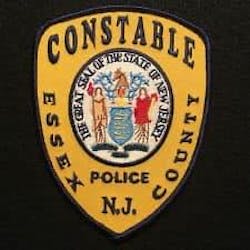Report Takes Aim at N.J. Constables, Calls Positions 'Outdated Relics'
Their titles harken back to colonial times.
In New Jersey, there are still constables — carrying badges, wearing uniforms and serving in what to some appears to be a law enforcement role.
But the State Commission of Investigation, in a newly released report, labeled constables “outdated relics” that have no place in modern law enforcement.
Citing examples of widespread abuses of power — including a group of Essex County constables who the SCI said took it upon themselves to provide backup to police during the horrific Dec. 10, 2019, mass shooting in Jersey City — the commission called for the immediate repeal of the statutes that allow for constables in New Jersey.
“Rather than serving as a beneficial adjunct to police, the role instead far too frequently represents a potential hazard to the constables themselves, the police they claim to want to help and the public at large,” the commission said it its report. “The elimination of the position statewide is the only way to effectively stamp out the widespread abuses of power by constables revealed in this report.”
Andre Morton, founder of the County Constables Association of New Jersey, would not comment on many of the allegations raised by the SCI, but said he and others have been working with the Legislature to modernize the role and improve the supervision of constables.
“Constables are peace officers. We’re not police,” he said. Proposed legislation, he added, would allow constables to be academy trained and clearly spell out their role.
The SCI, however, said constables are little more than obscure volunteers and in some communities the position is “nothing more than a ceremonial title doled out by local politicians.”
Given the highly trained and coordinated law enforcement apparatus now in place, and the trend toward greater accountability, the SCI said it was an anomaly that New Jersey municipalities still empower untrained and unsupervised private citizens to serve as constables.
In New Jersey, constables have limited powers. They do not have the same authority as a police officer. Most of their work involves delivering writs and subpoenas for attorneys and providing security. They are appointed to three-year terms by a council person in the township where they live. Each municipality can have between two and 50 constables. They are paid by private attorneys and other business interests, not taxpayer money. Some constables even purchase their own patrol cars and uniforms.
There are no real requirements. Anyone who is a “qualified voter” and resident of a municipality for three years prior to the appointment is eligible to become a constable under state law, said the SCI.
But their role has been a long-standing issue with some in law enforcement. Prosecutors in Essex and Union have argued that constables have misrepresented themselves as police, and demanded that they discontinue using the word ‘police’ on badges, shirts, hats and uniforms.
The commission in its report said some constables have portrayed themselves as bona fide law enforcement officers, wearing uniforms that look similar to those worn by police officers. One faced criminal charges after allegedly pulling over a taxi driver and demanding proof of motor vehicle credentials after the two were involved in a July 2020 traffic dispute.
The commission added that the vast majority of identified constables legally own at least one firearm. Many have court-approved permits enabling them to carry weapons only within the scope of their private employment as security guards when on duty. However, the SCI said some constables unlawfully carry their weapons even when off-duty, as if they were police.
Morton, who testified before the SCI, said the commission did not look at the good that constables do, and specifically denied the characterization of his response to the shootings in Jersey City.
The report said Morton showed up at the scene by choice.
“It marked one of three times in his seven-year appointment as a volunteer constable that he would draw his own gun,” the report noted. “He and a group of several other Essex County constables showed up that day without invitation or oversight by police scene commanders. The constables heard the events unfolding on police radios they monitored and took it upon themselves to show up and get involved.”
Morton said the SCI tried to make it sound like they played a negative role.
“We were nowhere near where there was gunfire. We were directing people away from the gunfire,” he said.
______
©2021 Advance Local Media LLC.
Visit nj.com.
Distributed by Tribune Content Agency, LLC.
